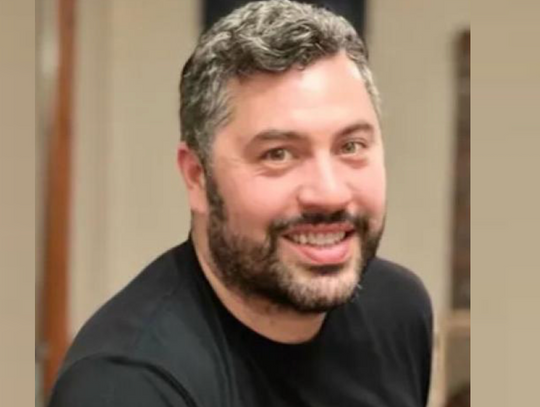Rozmawiałem niedawno z przyjacielem, a on narzekał na autobusy. Mój przyjaciel dojeżdża autobusem do pracy, a dojazd zajmuje mu około 30 minut. Nie narzeka na to, bo jeździ autobusami od roku 1980, czyli od kiedy rozpoczął pracę w tym miejscu. W sumie to wiele rzeczy w jeździe autobusami lubi. Powtarza, że są lepsze niż Uber. Tańsze i bardziej można na nich polegać, a co najważniejsze – nie trzeba zmuszać się do pogawędek z kierowcą.
Co zatem przeszkadza mu w autobusach?
Otóż pasażerowie z ich denerwującym zaangażowaniem w korzystanie z urządzeń elektronicznych. Ludzie siedzą i wpatrując się w ekrany ignorują cały istniejący świat. Korzystanie z niektórych urządzeń, zdaniem mojego przyjaciela, jest sensowne. Na przykład używanie Kindla jest w porządku, to akurat jest w stanie zrozumieć. Ci ludzie czytają książki, a czytanie przecież zawsze było w autobusach podstawową rozrywką. Natomiast nie do pojęcia jest dla niego atrakcyjność innych urządzeń, wszystkich tych iPhonów i iPadów. Dla mojego przyjaciela ich użytkownicy wyglądają, jakby przypadkowo klikali na uśmiechnięte buźki i jednorożce na ekranach swoich telefonów lub śmieją się z filmiku oglądanego na iPadzie, na którym śliczne dziecko raczkując zderza się z drzwiami i traci przytomność.
Zapytałem mojego przyjaciela, co, jego zdaniem, powinni robić ludzie jadący autobusem. Pomyślał przez chwilę, po czym odpowiedział: „Nic. Jeśli nie czytają, to wolałbym, żeby siedzieli i wgapiali się w budynki i sklepy, które mijali już tysiące razy i pewnie będą mijać tysiące razy. Tak było od zawsze i tak być powinno. Po prostu stare dobre gapienie się przez okno”.
Pokręciłem głową i zapytałem: „Czy myślisz, że tak było zawsze?” „Tak” – odpowiedział. „Jak tylko sięgam pamięcią”.
Musiałem go trochę oświecić. Powiedziałem mu, że wolę, żeby ludzie brali ze sobą do autobusu swoje telefony i tablety niż rzeczy, które zabierali ze sobą 40 czy 50 lat temu. Pamiętam na przykład człowieka, który wsiadł do autobusu ze spalinową kosiarką do trawy. Smród spalin było czuć w całym autobusie. Innym razem wsiadł facet z 50-galonową beczką, którą znalazł w jakimś zaułku. Wiózł ją do sklepu z artykułami metalowymi na Division Street, gdzie zamierzał sprzedać ją za dolara. Ale to nie była najbardziej szalona rzecz, jaką widziałem w autobusie. Pewnego razu do autobusu, którym jechałem wsiadł niewidomy mężczyzna, który miał ze sobą cztery żywe kurczaki. Kiedy kierowca próbował go zatrzymać, ślepiec oznajmił, że kury widzą za niego.
Ludzie byli kiedyś o wiele bardziej szaleni. Możemy być wdzięczni, że w naszych czasach jeżdżą tylko ze swoimi iPhonami i iPadami.
Buses and iPhones
I was talking to a friend recently, and he was complaining about buses. He normally takes a bus to work, and the ride generally takes him about 30 minutes. He doesn’t complain about that. He’s been doing it since 1980 when he first got this job. In fact, there are a lot of things he likes about buses. He says they’re better than Ubers. They’re cheaper and more dependable, and he doesn’t have to make endless chit chat with the Uber drivers.
So what bothers him about buses?
It’s the people and their annoying involvement with electronic devices. People sit there ignoring the whole world as they play with them. Some of the devices make sense to him. He says people reading their Kindles is okay. That’s something he can understand. These folks are reading, and reading has always been one of the number one activities on a bus. But he just can’t figure out what the appeal of the other devices is, iPhones and iPads. He says it looks like folks are just randomly poking as quick as they can at the smiling faces and unicorns on their cellphone screens or laughing as they watch some kind of video on their iPads of a cute toddler rushing straight at a door and banging himself unconscious.
So I said to my friend, “What do you want them to be doing instead?” He thought for a minute, and then he replied, “Nothing. If they’re not reading, I want them to just be sitting there staring at the houses and stores they’ve passed a thousand times and will probably be passing a thousand times again. That’s the way it’s always been, and that’s the way it ought to be again. Just a lot of good old-fashioned staring.”
I shook my head and asked, “You think that’s the way it’s always been?” “Yeah,” he says, “as far back as he can remember.”
So I straightened him out. I told him I prefer people bringing their iPads and cellphones on the buses to what people used to bring on the buses 40 - 50 years ago. I remember one time a guy carried his gas-powered lawn mower onto the bus. You could smell the fumes from the front of the bus to the back. Another time, a guy got on with an empty 50-gallon drum that he found in some alley. He was taking it to a hardware store on Division Street where he hoped to sell it for a dollar. But that’s not the craziest thing I saw a guy bring on the bus. One time, I saw a blind guy bring his 4 chickens onto a bus. When the driver tried to stop him, the blind man said they were seeing-eye chickens.
Really, people were crazy back then. We should all be thankful that all people are bringing onto the buses is iPhones and iPads.
John Guzlowski
amerykański pisarz i poeta polskiego pochodzenia. Publikował w wielu pismach literackich, zarówno w USA, jak i za granicą, m.in. w „Writer’s Almanac”, „Akcent”, „Ontario Review” i „North American Review”. Jego wiersze i eseje opisujące przeżycia jego rodziców – robotników przymusowych w nazistowskich Niemczech oraz uchodźców wojennych, którzy emigrowali do Chicago – ukazały się we wspomnieniowym tomie pt. „Echoes of Tattered Tongues”. W 2017 roku książka ta zdobyła nagrodę poetycką im. Benjamina Franklina oraz nagrodę literacką Erica Hoffera, za najbardziej prowokującą do myślenia książkę roku. Jest również autorem dwóch powieści kryminalnych o detektywie Hanku Purcellu oraz powieści wojennej pt. „Road of Bones”. John Guzlowski jest emerytowanym profesorem Eastern Illinois University.
—
John Guzlowski's writing has been featured in Garrison Keillor’s Writer’s Almanac, Akcent, Ontario Review, North American Review, and other journals here and abroad. His poems and personal essays about his Polish parents’ experiences as slave laborers in Nazi Germany and refugees in Chicago appear in his memoir Echoes of Tattered Tongues. Echoes received the 2017 Benjamin Franklin Poetry Award and the Eric Hoffer Foundation's Montaigne Award for most thought-provoking book of the year. He is also the author of two Hank Purcell mysteries and the war novel Road of Bones. Guzlowski is a Professor Emeritus at Eastern Illinois University.
fot.Pexels.com










